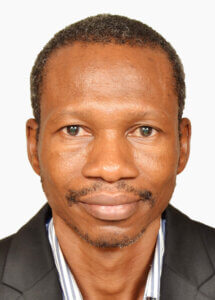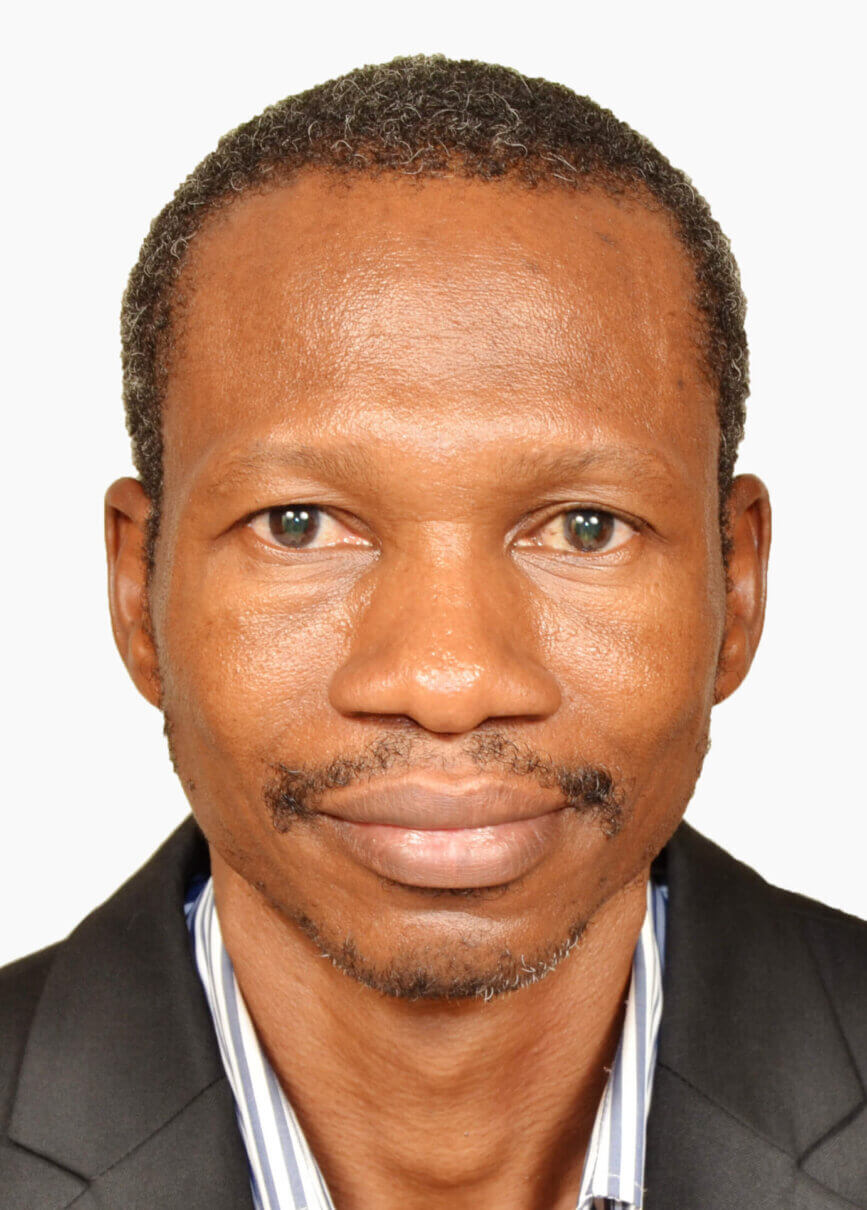This year Cactus Communications celebrates 20 years of supporting researchers on their publication journeys. Starting with our editing service, Editage, CACTUS soon expanded to publication support, pre-submission checks, research impact creation, and other solutions for researchers’, needs beyond publication. To celebrate, we recognize researchers from across the globe who share our vision in supporting and empowering researchers in this interview series.
Please briefly introduce yourself, focusing on your research experience and achievements.

Dr. Nouhoum Bouare
I’m Nouhoum Bouare, Public Health doctor, DSc/PhD, official Researcher in National Institute of Public Health (INSP formerly called INRSP), since 2007. From 2009, I pursued a research fellowship (HCV/HIV topic) at Liege University under the instruction of Professor Andre Gothot and Dr. Christiane Gerard and graduated a Doctor in Biomedical and Pharmaceutical Sciences (field management of diseases) in Jun 2013. I was promoted as Researcher in charge of Biological Sciences in National Institute of Research in Public Health (INRSP) in 2017. My ongoing research interests are mainly focused on viral hepatitis (HCV and HBV) and HIV. I was certified by Editage Insights Publication Success Academy on completing the advanced course “Become a great peer reviewer: Essential training for new and established peer reviewers” in 2017. From 2018 to 2021 I was hired as official member of the editorial board of World Journal of Hepatology, and reviewer of three World Journal series (Hepatology, Virology, and Gastroenterology). I’m currently biomedical scientist at INSP.
You study in Belgium but work in Mali. What was driving you to work in Africa?
I was already hired (tenure track) before I pursued my fellowship research sponsored by the Belgium Technical Cooperation (BTC/CTB). Furthermore I was motivated to work in Africa to contribute to overcome biomedical challenges in this region.
You are a doctor in Biomedical and Pharmaceutical Sciences. In China, there are also many doctoral students in this area who are overcoming disciplinary problems. Have you ever been in contact with Chinese researchers?
I attended the seminar for public health workers coming from African francophone countries, which was held in August 2016 in China. This seminar aimed to deepen the knowledge of African public health workers about socio-economic development story of China (progress performed in the domains especially trade, public health, rural development, pharmaceutical and biotechnological industry), the challenges to overcome, the means to manage them and to discover China’s cultural patrimony.
In your opinion, what is the difference between scientific research in China, Africa and Europe?
I attended international scientific conferences and/or training in Europe, China, USA and Africa. In my point of view, I agree with Louis Pasteur’s quote: “Science knows no country, because knowledge belongs to humanity, and is the torch which illuminates the world.”
In summary I believe in the universal characteristics of science. However, the difference may be located in the means needed to be deployed to achieve scientific research. Among them we can enumerate three main resources: funding, human (a well skilled and experienced researchers) and technology (technical tools). In China and Europe-like high income countries there is a critical mass of competent researchers, available performant technologies and adequate infrastructures, and the research funding is in majority supported by the government and more accessible unlike the majority of African countries.
What is your typical working day like?
My working day is typically based on networking, manuscripts and proposal projects writing, registration to webinar for training myself, communication with scientific partners, etc.
How many papers have you published so far, which one is the most impressive one? Please recall the history of its publication.
I’m author of six peer–reviewed articles, six conference papers, etc. I was awarded C-Hep Best Poster for Young Investigators in 2012 Berlin from successful study and scientific production about HIV/HCV comparative epidemiology and relevancy of HCV NS3 epitope in the detection of the virus presence by implementing EIA (ELISA methods).
Among the papers I published, a review article related to COVID-19 global approach retained my attention. In this work I benefited from both local and international partnerships to make a qualitative documentation. After a first French version translation of the manuscript in English language by the national specialized center, and depending on the journal’s editorial recommendation to improve language quality, the document draft has been sent to Editage for language editing services. However, it is important to note that the timeline for publication process was long due to a funding issue to pay article processing charge (APC). Despite the long publication journey, we published an interesting paper in the World Journal of Virology that deals with the COVID-19 pandemic topic.
What do you think is the relationship between research and papers?
A paper is the finality of research work. It summarizes the results of research in a clear and coherent message statement, and values the same results after a peer-review process and publication in scientific journal. The type of paper depends on the type of research, hence the importance of manuscript checklist.
In your process of scientific research, what do you think is the most important thing to do when you are working on an essay?
I think that the most important thing to do before working on an essay is the message to communicate depending on both the research key findings and writing requirements (manuscript checklist and suitable journal recommendations).
In Africa, there are many problems related to biology and medicine that need to be solved urgently. What is the most important problem you hope to solve?
As far as biology and medicine are concerned, in the African region there are many important related problems (HIV, viral hepatitis, TB, malaria, HTA, diabetes, respiratory and diarrheal diseases a fortiori in children). I think that an integrated and pluralistic approach is needed for an efficient management of these diseases. I hope to solve the problems linked to chronic diseases to prevent the future complications and reduce the related hospitalizations.
What progress have you made in solving that problem?
The first time, I worked on HIV and HCV epidemiology and HCV diagnosis in my country, Mali. I’m working on HCV management in children in order to improve HCV cascade of care in Africa. I’m looking for funding and eventual collaboration to perform our proposal projects related to “HIV global management in Mali” and “GWAS HBV in West Africa”.
What is your dream regarding to your research life?
Regarding my research life, I dream to create a public or private laboratory for diagnosis and monitoring of chronic diseases.
Where do you see yourself in 20 years?
In 20 years I will have contributed to the creation of the laboratory of diagnosis and monitoring of chronic diseases, to reduce the burden of these diseases in Africa and elsewhere, to perform the training of many young researchers, finally I could realize my dream.
You are the editorial board and reviewer of many journals. During your review process, what qualities do you value most in a manuscript?
Regarding the review process, I value mainly qualities such as: in “Introduction section” the study rational, aim and motivation; in “method section” the reliability and validity of the research method (conformity with suitable checklist to address the study objective and/or hypothesis, therefore to achieve the main findings, and experiment reproducibility); ethical considerations; in “results section” the originality, novelty of outcomes; in “discussion section” the study limitation and/or future direction ; in “conclusion section” the contribution of the research; and in “references section” the latest references which are important in the study topic and related to the scientific problems and research hypotheses addressed in the study. It is even important to respect the guidelines of the journal regardless of the manuscript quality.
You have mentioned the importance of the manual checklist twice. Can you elaborate on why it is so important?
The checklist can be considered as a guideline with appropriate recommendations to be considered for scientific research proposal and/or paper. The research paper checklist is helpful for paper review process and the complete research proposal checklist is intended order to the funder. It is important to have an overview on the both checklists before undertaking a scientific study.
In general, what steps will you follow when working on a dissertation? Which steps do you think are the most critical?
In order I follow the step: Introduction; literature review; method; results; discussion and conclusion. The most critical steps are the literature review (critical evaluation of relevant sources), reporting, the method (reliability and validity of research) and discussion (interpretation, implication and limitation of the results).
You mentioned that you are looking for funding and partners to execute your proposal, is this process difficult? In Africa, what is the biggest difficulty you will encounter when trying to advance a scientific research proposal?
Effectively, funding search is not easy, because seven years ago I was looking for research funding to perform a GWAS HBV Study in Mali (West African area) where chronic hepatitis infections constitutes a real public health burden. The first draft and proposal project have been written in collaboration with international scientists who come from Swiss and Belgium. In 2020 we benefited of a new Nigerian collaboration via a Nigerian scientist who shown his interest for the project after reading it on the ResearchGate website. In fact, we extended the project to the Nigerian population and updated it. The biggest difficulty I might encounter to advance a scientific research proposal in Africa is the lack of financial resources.
A version of this interview was first published on the Editage China WeChat account. Learn and grow as a researcher through the Researcher.Life Ambassador Program – apply today!



